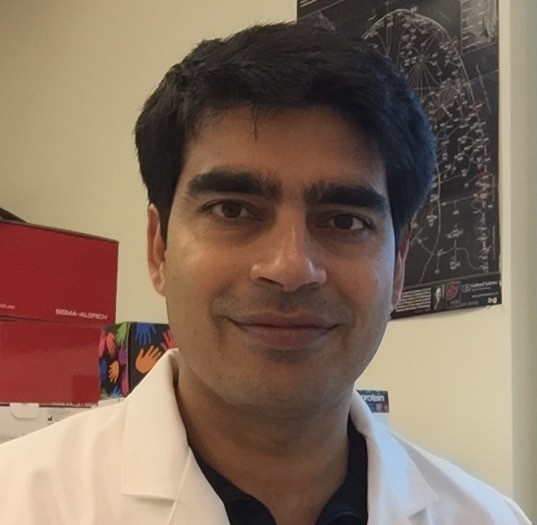
Breaking New Ground in Cancer Treatment: AIIMS Develops CAR T-Cell Therapy
Cancer is on the rise, and with it comes a growing sense of urgency to tackle the physical, emotional, and financial toll it takes on patients and their families. Among the many forms of this disease, multiple myeloma—a challenging blood cancer—has stood out for its lack of effective treatment options. But there’s a glimmer of hope, thanks to a groundbreaking innovation from AIIMS’ Department of Medical Oncology: CAR T-cell therapy. This cutting-edge treatment is a beacon for patients seeking long-lasting relief.
To learn more about this revolutionary therapy, Drug Today Medical Times caught up with Dr. Mayank Singh, Additional Professor of Medical Oncology, Lab, Delhi-AIIMS and the lead researcher behind this exciting trial. Here’s what he had to say:
DTMT: Dr. Singh, how do you see the current state of cancer treatment, and where does CAR T-cell therapy fit in?
Dr. Singh: Honestly, we’ve been managing cancer the same way for years, and while it’s helped, the numbers tell a sobering story. Cancer cases are rising fast, and we’re expecting them to go even higher. This makes it critical to move toward next-generation therapies that offer durable, long-term responses. CAR T-cell therapy is one such approach. Unfortunately, India is a bit late to the game compared to other countries, but we’re determined to catch up.
DTMT: Developing something this advanced must have been a huge challenge. What was that like?
Dr. Singh: Oh, it’s been a journey—a tough one. This therapy is incredibly expensive, and one of our primary goals at AIIMS is to bring that cost down. About three years ago, the government stepped in with funding to help us create an affordable version of CAR T-cell therapy. Since then, we’ve focused on tackling multiple myeloma.
To make it happen, we developed a molecule that specifically targets cancer cells. We conducted a study with patients from the Institute of Rotary Cancer Hospital, isolating proteins, doing gene cloning, and generating antibodies against the B-cell maturation antigen—a key player in this therapy. I’m happy to share that we’ve applied for a patent for our work.
DTMT: How does CAR T-cell therapy actually work?
Dr. Singh: Great question! Let me break it down. CAR stands for Chimeric Antigen Receptor, and T cells are part of our immune system that fights infections. The problem with cancer is that it originates from our own body, so T cells don’t recognize it as a threat. What we do in CAR T-cell therapy is “train” these T cells by integrating them with CAR molecules. These modified T cells are then reintroduced into the patient’s body, where they can identify and destroy cancer cells. It’s essentially live immunotherapy—a way to supercharge the body’s natural defenses.
DTMT: What types of cancers can benefit from this therapy?
Dr. Singh: It’s designed for blood cancers, especially cases where the disease has relapsed or become refractory. Relapsed cancer is when it comes back after initial treatment, and refractory cancer doesn’t respond to any drugs. Our version of CAR T-cell therapy is showing promise for advanced-stage blood cancers, and it offers a response that’s not just effective but also long-lasting.
DTMT: Where does the research stand now?
Dr. Singh: So far, we’ve successfully completed animal experiments and in-vitro studies, which prove its effectiveness. We’ve applied for patents and are now working with funding agencies to move to the next phase: human trials. We’re aiming to begin phase one clinical trials within the next 18 months. It’s an exciting time, and we’re confident in the potential of this therapy.
DTMT: For those who might not be familiar, can you explain the significance of CAR T-cell therapy in simple terms?
Dr. Singh: Of course. Think of T cells as the body’s soldiers, fighting off infections. But when it comes to cancer, these soldiers are unable to recognize the enemy. CAR T-cell therapy gives them a new weapon—a CAR molecule—that helps them identify and attack cancer cells. It’s like giving them a map and specific instructions to take down the target.
DTMT: How effective has CAR T-cell therapy been in fighting multiple myeloma?
Dr. Singh: A trial conducted in the U.S., known as Karma, found it to be 78% effective, with tumors significantly reduced in the majority of patients. Many participants went on to enjoy good health, which speaks volumes about its potential.
DTMT: Cost is always a concern. How affordable will this therapy be for patients in India?
Dr. Singh: Abroad, CAR T-cell therapy is extremely expensive due to high manufacturing and patent costs. Our goal is to make it affordable by using our own patents and infrastructure. We estimate that our therapy will cost just a tenth of what it does in other countries. Over time, as we refine the process, costs could come down even further.
With this pioneering effort, AIIMS is not just bringing hope to patients but also putting India on the map for cutting-edge cancer treatments. The journey ahead is challenging, but the destination holds the promise of transforming countless lives.